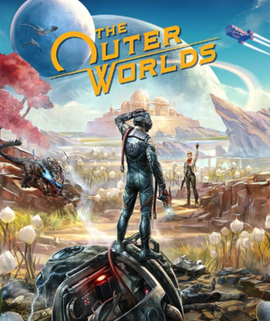Lin Zhu takes Animal Crossing as the subject for a case study on the psychology behind games.
Animal Crossing got released during a global pandemic which brought us all social distancing rules. Two observations being made are the perfect social platform the game provided to fight off the loneliness. On the other hand it would provide a temporal dreamland to escape from the cruel reality with a risk of losing in escapism.
The risk of losing oneself in escapism in the case of a sandbox game might be larger during a stressful situation, like say a global epidemic.
The world locked down in March 2020 and overall there was an increase in video game consoles being sold with the release of Animal Crossing probably stimulating sales. There was no lockdown in Animal Crossing as its premise is a social simulation game, it opened doors to all of us inside. The fact it is a social simulation game is what sets apart this game from other simulation games. Other simulation games capture people’s desires to escape into a world in which they have control as well, however they do not tend to simulate social aspects to life. Non playable characters with a set of responses will not satisfy any social goals other than extracting information in order to complete small task. If the goal is to get you to interact with others you might find yourself trying to keep performing this task and as a side effect get rid of loneliness.
It appears this risk of losing oneself in escapism is especially salient in this game as it portrays itself as a community builder. Perhaps it´s the case that the digital is turning the psychology behind every game further towards the social.
Back in 1984 Pajitnov probably did not expect Tetris would become a competitive, last-man-standing game or even more recently when Barone released Stardew Valley, it is doubtful he believed the game, a farming simulation, would hold an e-sport type competition. Both these games had no premise for interactivity between gamers, yet they became interactive. Possibly because the digital nowadays understands our engagement in a virtual environment is more limited when we are competing with the machine than with another person.
Zhu´s warning has me wondering whether Animal Crossing´s psychology differs from other digital outlets. In a sense it capitalizes on attention while offering control over one´s identity and this we can also see in how people present themselves in social networks. Facebook´s design was built upon the idea it could give a fine-tuned control over what we looked at (Jia Tolentino, 2019) . The game not so much simulates a social network, it offers a social network and in that way does not just put people at risk of losing oneself in escapism, it is designed as a tool for escapism. In a world where social networks become more widely available and where they are designed as tools for escapism, maybe the shift of video games design to social network design can tell us something about change at a larger network scale. I cannot tell you what direction this is headed, but I do think Tolentino makes a good case when she writes: we’ve got nothing except our small attempts to retain our humanity, to act on a model of actual selfhood, one that embraces
culpability, inconsistency, and insignificance.




Loved this post! I think you’re right that games like Animal Crossing facilitate escapism. I believe that this idea of escapism has only grown during the lockdown. In this sense, it’s no different than Facebook, Instagram or Tinder; tools that seem to improve your social life and interaction, but try to keep you on the platform to keep profiting off of you. Personally, I think I have deleted things like Instagram or Tinder ca. 10 times due to the fact I got less socially happy from it, but then got back on for the instant dopamine kicks and a tiny bit of FOMO. These apps and games simplify social interaction and make you feel more confident and successful, only to find out later that they achieve the opposite in real life.